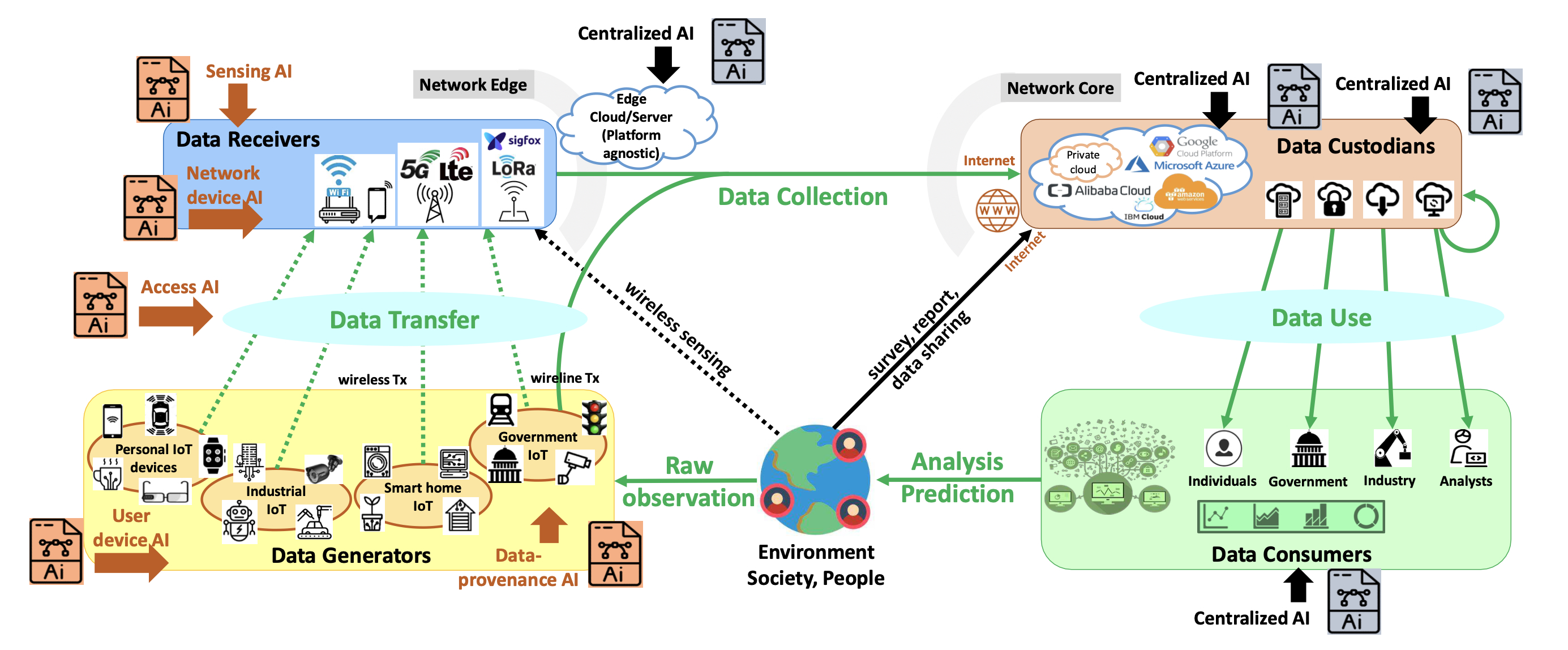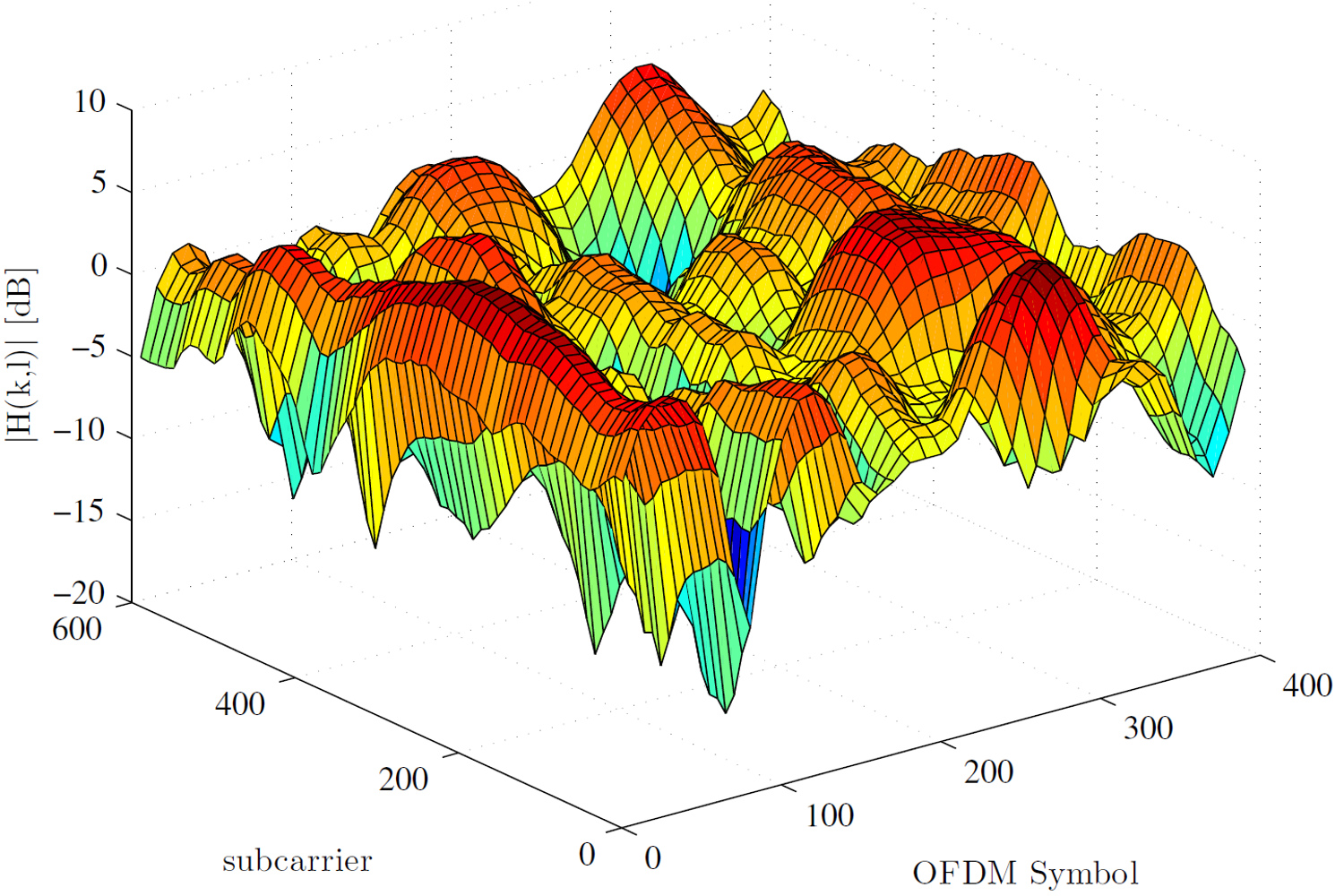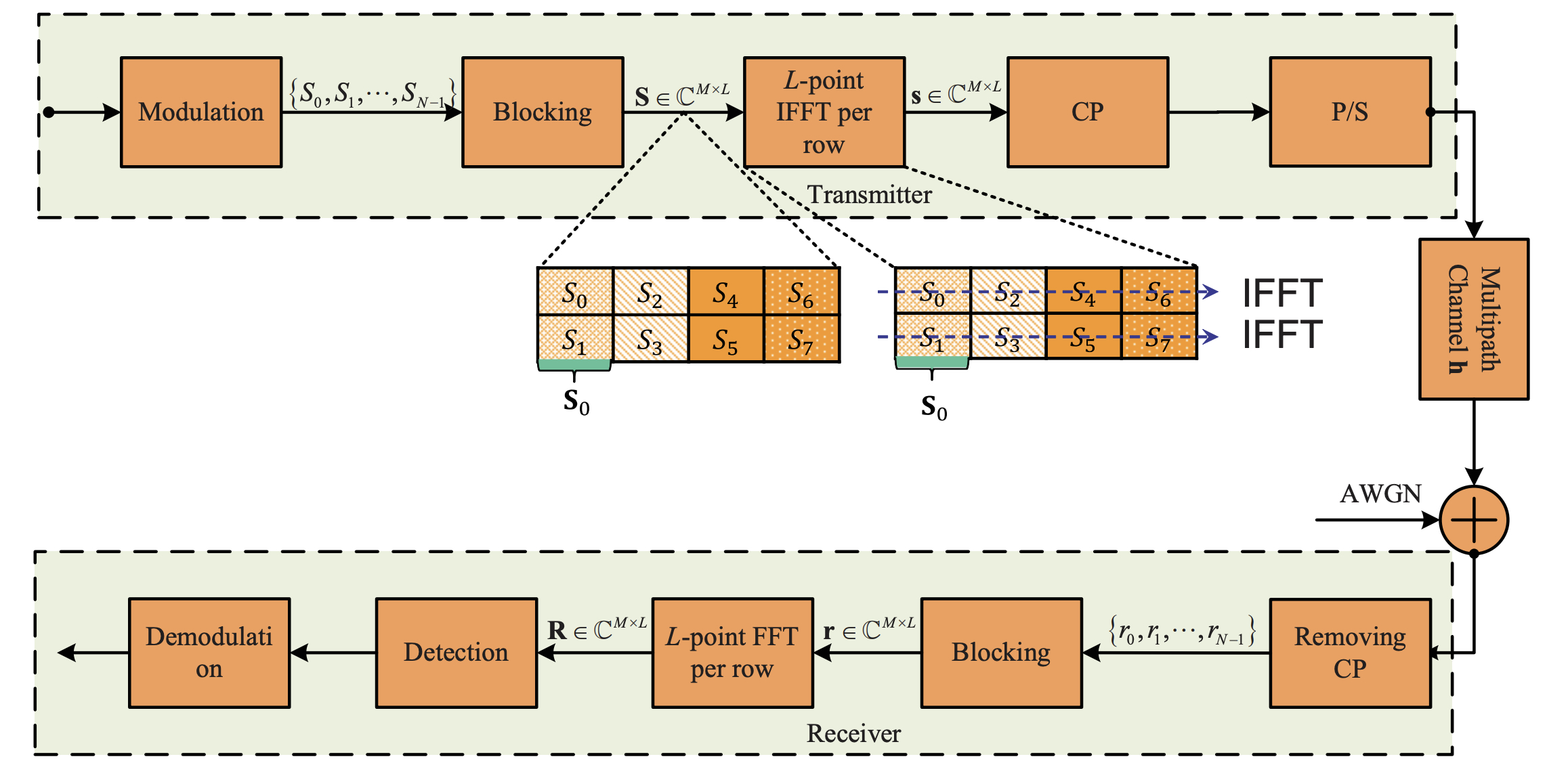Peng CHENG
 |
Associate Professor |
About me
Dr Peng Cheng is an Associate Professor in the Department of Computer Science and Information Technology at La Trobe University, VIC, Australia. He was an Australian Research Council Discovery Early Career Research Fellow (ARC DECRA). He is a core member of the Cisco-LTU Research Centre for AI and Internet of Things. Cheng was also an Honorary Senior Lecturer in the School of Electrical and Information Engineering at the University of Sydney, NSW, Australia. Before joining La Trobe University in 2020, Cheng worked as a Postdoctoral Research Scientist at CSIRO from 2014 to 2017 on projects such as Nagara communications and WASP indoor localization. From 2017 to 2020, Cheng was an ARC DECRA Fellow/Lecturer at the University of Sydney. Cheng obtained a PhD in Communication and Information Systems from Shanghai Jiao Tong University, China.
I am seeking self-motivated students interested in pursuing a PhD to join my group. I also welcome applications of Visiting Scholars. Please send me an email with your CV.
Recent News
01/2026 Our lastest work on "Federated Customization of Large Models: Approaches, Experiments, and Insights" was accepted by IEEE Network
12/2025 One paper accepted in IEEE Transactions on Communications
12/2025 One paper accepted in IEEE Journal on Selected Areas in Communications
03/2025 One paper accepted in IEEE Journal on Selected Areas in Communications
02/2025 Attended AusCTW 2025 in Perth and presented on Graph Deep Learning for Wireless Communications.
10/2024 Simulation code packages for recent published papers will be released.
09/2024 One paper accepted in IEEE Transactions on Signal Processing
08/2024 One paper accepted in IEEE Journal on Selected Areas in Communications
06/2024 One paper accepted in IEEE Transactions on Signal Processing
06/2024 Personal website is accessible
Recent Research (Big Picture)

My current research focuses on AI-driven IoT and its impact on connectivity and intelligence. The above figure highlights a data lifecycle with four main entities: 1) Data generation through monitoring by smart IoT devices, 2) Data transfer via networks like 4G/5G or Wi-Fi to the Internet, 3) Data collection by custodians using cloud services, and 4) Access and analysis of data by consumers for big data mining. The data lifecycles also involve two shortcuts: one from the physical world directly to data receivers (wireless sensing) and another bypassing both generators and receivers to reach custodians. AI functions are typically centralized in clouds or data centers for big data analysis. My research aims to push AI capabilities to the network edge, i.e., bringing computation functions to data, close to data generators and receivers. This includes the following new research directions/areas (to be updated):
Sensing AI
WiFi Sensing

Fig. 1. Our team developed a novel multi-task contrastive learning framework for accurate concurrent detection of respiration and heart rates using WiFi sensing. In a test scenario, 80% of respiratory rate errors are below 0.26 bpm and 80% of heart rate errors are below 1.21 bpm. Radar Sensing
Fig. 2. Our team is developing radar sensing in assisted living. Hyperspectral Imaging
User and Network Device AI
On-device AI
Edge AI
Access AI
AI for Physical (PHY) Layer
AI for Media Access Control (MAC) Layer
AI for Network Layer
Data-provenance AI
AI for Data Compression
AI for Data Privacy
AI for Data Security
AI-driven IoT enables real-time analytics and decision-making, offering high-performance data computation right on the network edge and benefits multiple sectors such as agriculture and digital health. Please refer to the following papers for the details.
D. C. Nguyen*, P. Cheng, M. Ding, et al., "Enabling AI in Future Wireless Networks: A Data Life Cycle Perspective," IEEE Communications Surveys & Tutorials, vol. 23, no. 1, pp. 553-595, Firstquarter 2021. [IEEE PDF]
P. Cheng, Y. Chen, M. Ding, Z. Chen, S. Liu, and Y. -P. P. Chen, "Deep Reinforcement Learning for Online Resource Allocation in IoT Networks: Technology, Development, and Future Challenges," IEEE Communications Magazine, vol. 61, no. 6, pp. 111-117, June 2023. [IEEE PDF]
P. Cheng, Z. Chen, M. Ding, Y. Li, B. Vucetic and, D. Niyato, "Spectrum Intelligent Radio: Technology, Development, and Future Trends," IEEE Communications Magazine, vol. 58, no. 1, pp. 12-18, January 2020. [IEEE PDF]
Previous Research
Compressive Sensing (CS) for Wireless Networks
CS is a powerful signal processing technique that leverages the sparsity of signals to efficiently acquire and reconstruct data. In wireless networks, CS can enhance performance and efficiency in various ways, including reducing the amount of data to be transmitted, improving signal quality, and optimizing resource usage. The following work [Ref 1] introduces a novel channel estimation method for OFDM systems in doubly selective channels using distributed compressive sensing (DCS). It addresses the challenge of inter-carrier interference and high pilot subcarrier needs due to numerous channel coefficients. By employing a basis expansion model and exploiting delay domain sparsity, the method transforms the channel into a two-dimensional model aimed at estimating jointly sparse coefficient vectors. A unique decoupling form based on a new sparse pilot pattern facilitates ICI-free structure and accurate joint vector estimation.

[Ref 1] P. Cheng, Z. Chen, Y. Rui, Y. J. Guo, L. Gui, M. Tao, and Q. T. Zhang, "Channel Estimation for OFDM Systems over Doubly Selective Channels: A Distributed Compressive Sensing Based Approach," IEEE Transactions on Communications, vol. 61, no. 10, pp. 4173-4185, October 2013. [IEEE PDF]
Performance Analysis and Optimization for Wireless Networks
Performance analysis and optimization are crucial for the efficient operation of wireless networks. This involves evaluating the performance of the network under various conditions and implementing strategies to enhance its efficiency, reliability, and capacity. The following work presents an analytical study of Vector OFDM (V-OFDM) over multi-path fading channels based on algebraic number theory. The goal is to investigate the diversity gain and coding gain of each vector block (VB) in V-OFDM so as to ultimately reveal its performance limits over fading channels. Interestingly, V-OFDM is closely related to the recent promising Orthogonal Time Frequency Space (OTFS) technique.

[Ref 2] P. Cheng, M. Tao, Y. Xiao and W. Zhang, "V-OFDM: On Performance Limits over Multi-Path Rayleigh Fading Channels," IEEE Transactions on Communications, vol. 59, no. 7, pp. 1878-1892, July 2011. [IEEE PDF]
Publications
Note: * PhD student under my supervision
Full list of publications in Google Scholar
[TSP] G. Wang*, S. Li, P. Cheng, B. Vucetic, and Y. Li, "ToF-based NLoS Indoor Tracking with Adaptive Ranging Error Mitigation," IEEE Transactions on Signal Processing, vol. 72, pp. 4855-4870, September 2024. [IEEE PDF]
[TSP] G. Wang*, P. Cheng, Z. Chen, B. Vucetic, and Y. Li, "Green Cell-free Massive MIMO: An Optimization Embedded Deep Reinforcement Learning Approach," IEEE Transactions on Signal Processing, vol. 72, pp. 2751-2766, June 2024. [IEEE PDF]
[TSP] Y. Xu*, P. Cheng, Z. Chen, M. Ding, Y. Li, and B. Vucetic, "Task Offloading for Large-Scale Asynchronous Mobile Edge Computing: An Index Policy Approach," IEEE Transactions on Signal Processing, vol. 69, pp. 401-416, December 2021. [IEEE PDF]
[TSP] Z. Yan*, P. Cheng, Z. Chen, Y. Li, and B. Vucetic, "Gaussian Process Reinforcement Learning for Fast Opportunistic Spectrum Access," IEEE Transactions on Signal Processing, vol. 68, pp. 2613-2628, April 2020. [IEEE PDF]
[TSP] R. Zhang*, P. Cheng, Z. Chen, Y. Li, and B. Vucetic, "A Learning-Based Two-Stage Spectrum Sharing Strategy With Multiple Primary Transmit Power Levels," IEEE Transactions on Signal Processing, vol. 67, no. 18, pp. 4899-4914, August 2019. [IEEE PDF]
[TSP] Y. Xu*, P. Cheng, Z. Chen, Y. Li and B. Vucetic, "Mobile Collaborative Spectrum Sensing for Heterogeneous Networks: A Bayesian Machine Learning Approach," IEEE Transactions on Signal Processing, vol. 66, no. 21, pp. 5634-5647, November 2018. [IEEE PDF]
[TON] Z. Yan*, P. Cheng, Z. Chen, B. Vucetic, and Y. Li, "Two-Dimensional Task Offloading for Mobile Networks: An Imitation Learning Framework," IEEE/ACM Transactions on Networking, vol. 29, no. 6, pp. 2494-2507, December 2021. [IEEE PDF]
[JSAC] W. Lukito*, W. Xiang, C. Liu, P. Lai, P. Cheng, and G. Mao, "Channel-Agnostic Predictive Beamforming for Crowdsourced Bistatic Satellite ISAC with LLM," to appear in IEEE Journal on Selected Areas in Communications, 2025. [IEEE PDF]
[JSAC] W. Xiang, M. Zia, J. Ahmad, P. Cheng, K. Yu, and T. Huang, "Deep Learning Enabled RIS Massive MIMO Systems in Industrial IoT: A Joint Communication and Computation Approach," IEEE Journal on Selected Areas in Communications, vol. 43, no. 9, pp. 2981-2996, September 2025. [IEEE PDF]
[JSAC] Y. Cai*, P. Cheng, Z. Chen, W. Xiang, B. Vucetic, and Y. Li, "Graphic Deep Reinforcement Learning for Dynamic Resource Allocation in Space-Air-Ground Integrated Networks," IEEE Journal on Selected Areas in Communications, vol. 43, no. 1, pp. 334-349, January 2025. [IEEE PDF][Code]
[JSAC] Y. Lu*, P. Cheng, Z. Chen, W. H. Mow, Y. Li, and B. Vucetic, "Deep Multi-Task Learning for Cooperative NOMA: System Design and Principles," IEEE Journal on Selected Areas in Communications, vol. 39, no. 1, pp. 61-78, January 2021. [IEEE PDF]
[JSAC] Y. Rui, Q. T. Zhang, L. Deng, P. Cheng, and M. Li, "Mode Selection and Power Optimization for Energy Efficiency in Uplink Virtual MIMO Systems," IEEE Journal on Selected Areas in Communications, vol. 31, no. 5, pp. 926-936, May 2013. [IEEE PDF]
[TMC] X. Huang, T. Huang, P. Cheng, J. Yuan, S. Zhao, and G. Zhang, "Optimizing Task Migration for Public and Private Services in Vehicular Edge Networks: A Dual-Layer Graph Neural Network Approach," IEEE Transactions on Mobile Computing, vol. 24, no. 12, pp. 13191-13208, December 2025. [IEEE PDF]
[TMC] G. Wang*, P. Cheng, Z. Chen, B. Vucetic, and Y. Li, "Inverse Reinforcement Learning With Graph Neural Networks for Full-Dimensional Task Offloading in Edge Computing," IEEE Transactions on Mobile Computing, vol. 23, no. 6, pp. 6490-6507, June 2024. [IEEE PDF]
[TMC] Y. Cai*, P. Cheng, Z. Chen, M. Ding, B. Vucetic, and Y. Li, "Deep Reinforcement Learning for Online Resource Allocation in Network Slicing," IEEE Transactions on Mobile Computing, vol. 23, no. 6, pp. 7099-7116, June 2024. [IEEE PDF]
[TMC] S. Liu*, P. Cheng, Z. Chen, W. Xiang, B. Vucetic, and Y. Li, "Contextual User-Centric Task Offloading for Mobile Edge Computing in Ultra-Dense Network," IEEE Transactions on Mobile Computing, vol. 22, no. 9, pp. 5092-5108, September 2023. [IEEE PDF]
[TCOM] Y. Gao*, P. Cheng, Z. Chen, K. T. Phan, W. Xiang and Y. -P. P. Chen, "Learning-Based User Admission Control for Large-Scale Cell-Free Massive MIMO," to appear in IEEE Transactions on Communications, 2025.
[TCOM] X. Dang, W. Xiang, L. Yuan, Y. Yang, P. Cheng, and A. Hernandez, "Model-driven Deep Learning for Massive Access in Internet of Things Networks," IEEE Transactions on Communications, vol. 73, no. 11, pp. 11259-11273, November 2025. [IEEE PDF]
[TCOM] R. Zhang*, P. Cheng, Z. Chen, S. Liu, B. Vucetic, and Y. Li, "Calibrated Bandit Learning for Decentralized Task Offloading in Ultra-Dense Networks," IEEE Transactions on Communications, vol. 70, no. 4, pp. 2547-2560, April 2022. [IEEE PDF]
[TCOM] C. Jiang*, Y. Wang, P. Cheng, and W. Xiang, "A Low-Complexity Codebook Optimization Scheme for Sparse Code Multiple Access," IEEE Transactions on Communications, vol. 70, no. 4, pp. 2451-2463, April 2022. [IEEE PDF]
[TCOM] Y. Lu*, P. Cheng, Z. Chen, Y. Li, W. H. Mow, and B. Vucetic, "Deep Autoencoder Learning for Relay-Assisted Cooperative Communication Systems," IEEE Transactions on Communications, vol. 68, no. 9, pp. 5471-5488, September 2020. [IEEE PDF]
[TCOM] P. Cheng, C. Ma, M. Ding, Y. Hu, Y. Li, and B. Vucetic, "Localized Small Cell Caching: A Machine Learning Approach Based on Rating Data," IEEE Transactions on Communications, vol. 67, no. 2, pp. 1663-1676, February 2019. [IEEE PDF]
[TCOM] P. Cheng, Z. Chen, J. A. Zhang, Y. Li, and B. Vucetic, "A Unified Precoding Scheme for Generalized Spatial Modulation," IEEE Transactions on Communications, vol. 66, no. 6, pp. 2502-2514, June 2018. [IEEE PDF]
[TCOM] P. Cheng, Z. Chen, F. de Hoog, and C. K. Sung, "Sparse Blind Carrier-Frequency Offset Estimation for OFDMA Uplink," IEEE Transactions on Communications, vol. 64, no. 12, pp. 5254-5265, December 2016. [IEEE PDF]
[TCOM] P. Cheng, Z. Chen, Y. Rui, Y. J. Guo, L. Gui, M. Tao, and Q. T. Zhang, "Channel Estimation for OFDM Systems over Doubly Selective Channels: A Distributed Compressive Sensing Based Approach," IEEE Transactions on Communications, vol. 61, no. 10, pp. 4173-4185, October 2013. [IEEE PDF]
[TCOM] P. Cheng, M. Tao, Y. Xiao and W. Zhang, "V-OFDM: On Performance Limits over Multi-Path Rayleigh Fading Channels," IEEE Transactions on Communications, vol. 59, no. 7, pp. 1878-1892, July 2011. [IEEE PDF]
[TWC] W. Lukito*, W. Xiang, C. Liu, P. Lai, P. Cheng, and G. Mao, "Learning to Design Transceiver for Integrated Sensing and Communications: A Satellite Communications Perspective," IEEE Transactions on Wireless Communications, vol. 24, no. 9, pp. 7409-7423, September 2025. [IEEE PDF]
[TWC] D. Zhang, A. Li, M. Shirvanimoghaddam, P. Cheng, Y. Li and B. Vucetic, "Codebook-Based Training Beam Sequence Design for Millimeter-Wave Tracking Systems," IEEE Transactions on Wireless Communications, vol. 18, no. 11, pp. 5333-5349, November 2019. [IEEE PDF]
[TGRS] S. Liang, T. Gao, T. Chen and P. Cheng, "A Remote Sensing Image Dehazing Method Based on Heterogeneous Priors," IEEE Transactions on Geoscience and Remote Sensing, vol. 62, pp. 1-13, March 2024. [IEEE PDF]
Competitive Grants
CI, “Low-cost sensing methods and hybrid learning models," Australian Research Council (ARC) Discovery Project, 2022-2024
CI, “Wireless cellular connectivity for large scale critical applications," ARC Discovery Project, 2021-2023
Sole CI, “Intelligent wireless access for Internet of Things," ARC DECRA Fellowship, 2020-2022
Sole CI, “Distributed compressive sensing for a new sensing paradigm," CSIRO TCP Grant, 2014-2017
Research Team
Current PhD students
Natasha Elizabeth Francis
William Lukito
Yijie Gao
Jianqiao Zhang
Geng Wang
Yuehan Cao
Ji Wang
Yifan Feng
Mingcheng Nie
Graduated HDRs
Yue Cai (PhD)
Yizhen Xu (PhD)
Rui Zhang (PhD)
Zun Yan (PhD)
Guangchen Wang (PhD)
Sige Liu (PhD)
Yuxin Lu (PhD)
Chunyang Wang (MPhil)
Chen Qiu (MPhil)
Yilun Wang (MPhil)
Teaching
2021-, Subject Coordinator & Lecturer, CSE5ML Machine Learning, Semesters & Online Terms, La Trobe University
2021-, Subject Coordinator & Lecturer, CSE3CI Computational Intelligence, La Trobe University
2020, Lecturer, CSE4RFS Real-Time and Fault-Tolerant Systems, Semester 2, La Trobe University
2019, Lecturer, ELEC3506 Data Communications and the Internet, Semester 2, School of Electrical and Information Engineering, The University of Sydney
2018, Guest Lecturer, TELE 4652 Mobile and Satellite Communications, Semester 2, The University of New South Wales
2017, Lecturer, ELEC5510 Satellite Communication Systems, Semester 2, School of Electrical and Information Engineering, The University of Sydney